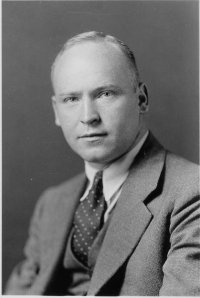
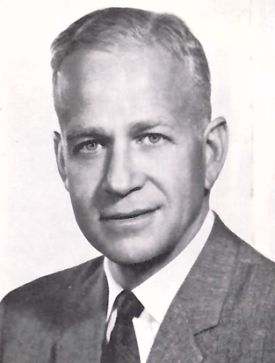

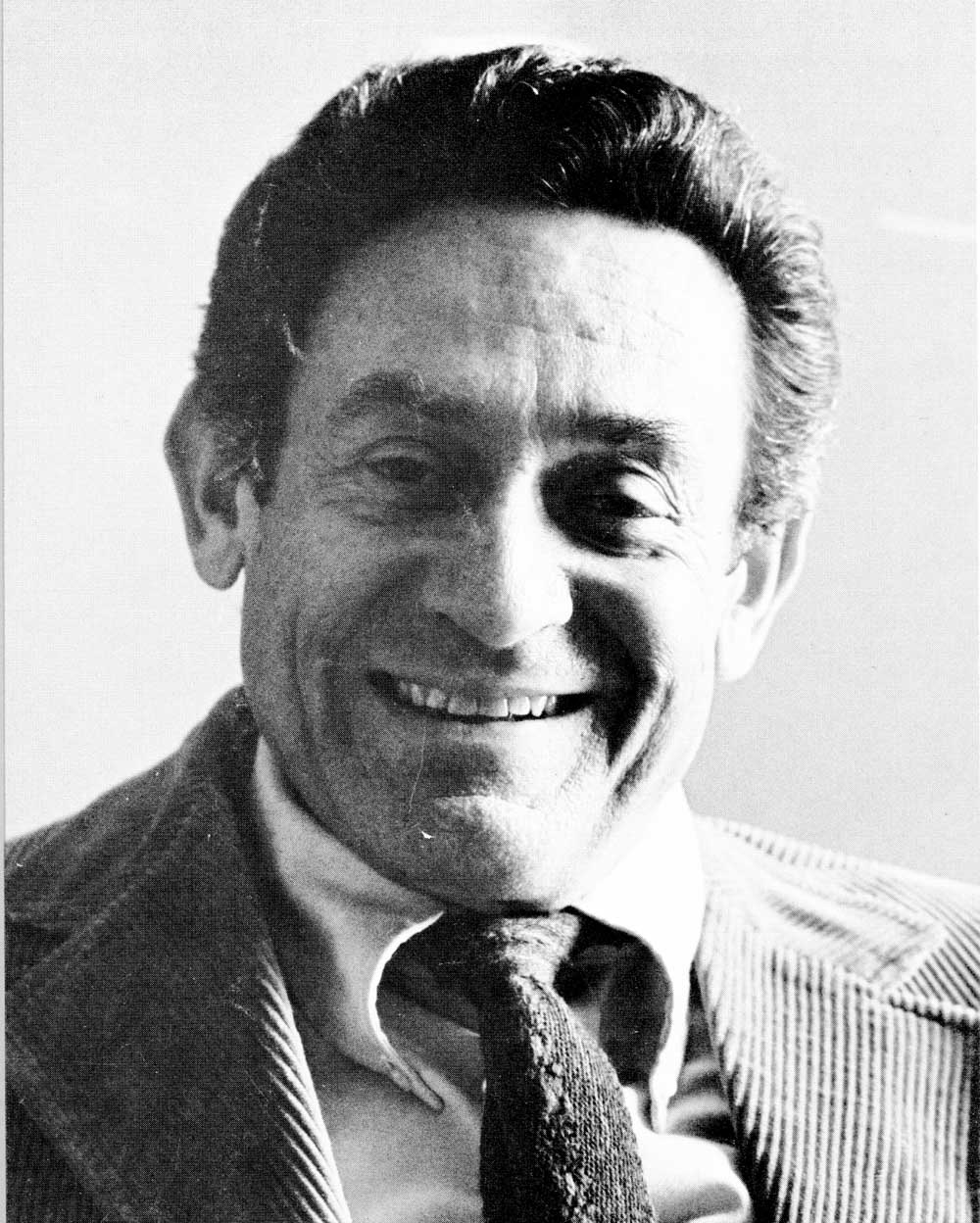
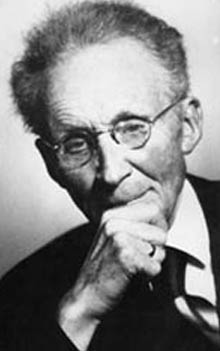


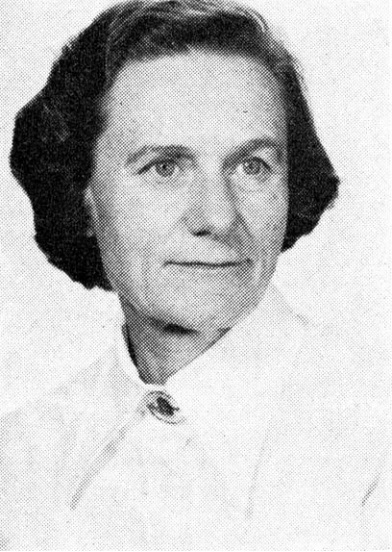 Meteorology / Atmos. Science
Meteorology / Atmos. ScienceAcademic Family Tree
Robert Hart1 and Josh Cossuth2
1Department of Earth, Ocean, and Atmospheric Science, FSU
2Office of Naval Research
Photos above (L-R): C. Rossby, H. Riehl, J. Simpson, J. Charney, P. Austin, S. Syono, Sir B. J. Mason, V. Bjerknes
[ Home | Help/FAQ | Latest Updates | Full Name List | Most Wanted | Individual Trees | Quotes & Stories | Add Yourself/Someone Else | Acknowledgments ]
"On behalf of all the dead people, thank you."
--Bill Gray, 25 October 2013, at CSU Seminar on [in part] the tree.
Please submit your personal stories or remembered quotes to metfamilytree [at] gmail.com
Quotes or stories by those with a last name beginning with "A":
Academic family trees are unusual in that only progeny who become academics are able to
reproduce. It would seem that it is actually impossible to produce a bastard academic
heir, though in point of fact I know several individuals worthy of that title.
During my graduate school years at CSU I was married with 4 very young rambunctious
children. After arriving from an assignment with the Joint Typhoon Warning Center on Guam
where I had established the DMSP site and had garnered 4 years of the then highest resolution
satellite data available of western Pacific typhoons, I settled into a study of the composite
nature of the stages of typhoon development under the mentorship of Bill Gray.
My research was conducted in my home study as the Air Force held me responsible for this
enormous data set, which had previously been classified and desired that none of it become
lost. The downside was that I found myself constantly being interrupted by these four children,
two boys and two girls. The youngest two were still toddlers while the older ones were by then
enrolled at Beatty Elementary across the street from our home on Meadowlark Ave.
I found myself frequently being pulled away to help my oldest daughter with her construction
of our family tree, or with her Science Fair project which involved collection of weather
observations several times a day, recording them properly, etc. My older son either wanted
to be throwing the football to me in the Beatty parking lot across the road, or help him with
construction of some three stage model rocket which took photos. All the while the little ones
were coming into my study to either complain about what the other one was doing or the
"devil eyes" they believed they had seen in the corner of their playroom upstairs.
After about six months attempting to drown out these interruptions with ear phones and
Chopin I brought my dilemma to Dr. Gray's attention one evening during one of the frequent
get togethers he and wife Nancy held with his students at their home. It didn't take Bill but a
second to offer a solution. He explained that he had this great swing set in his back yard which
had once belonged to Herb Riehl's children. I could take it if I were interested he told me.
After agreeing I found the red swing set had lost a great deal of its paint over the years which
had been largely replaced with brown rust. I also noticed its legs had been set in concrete.
Needless to say it was a struggle to lift those six legs into the back of my station wagon and
when I got the set home the real job of rebuilding, sanding, and painting the set began. But it
was then eagerly used by all four of the urchins which kept them out of my study so that I could
pore over each and every storm case for the next few years.
Many years later as we drove through Fort Collins on our way to another assignment we drove
by the old house to find Herb Riehl's swing set was still being used by the present residents.
Quotes or stories by those with a last name beginning with "B":
One day in 1946 when I was waiting to see Rossby, who was my doctoral adviser(!), he came out of his office at the University of Chicago with an "important" visitor in tow. He was saying to the visitor "The trouble with graduate students these days is that they don't read enough of the literature". He then spotted me and said "You- Bryson- what have you read lately"? I looked him straight in the eye and said: "I have read all of Rossby. I have read Brunt, and I have read Lamb". He flushed and said that of course there were those who read too much. He knew that I knew that most of what was in Rossby came rather directly from Lamb and Brunt.
On another occasion in 1946, Rossby was besieged by foreign visitors- Chinese, Japanese, French, British, etc.- and of course there were a number of Americans who wanted to see him. Most were congregated in a class room just across the hall from his office. As usual, I was standing in the hall hoping to talk to him about my thesis. Though he was my advisor, I rarely got to discuss my work with him more than a minute or two at a time. Usually, if I ever got a chance to discuss any of my other research with him he would say "That's interesting. Put it in your thesis".
On this particular occasion, he came out of his office with several foreign visitors in tow, and looking somewhat harassed. He spotted me and said "Bryson, come in here and tell our visitors about your research", leading on into the classroom. Needless to say I was young and a little flustered. Seating himself in the front row, he addressed the group with a very casual statement that Bryson would tell them about his research on tropical weather systems. Taking my cue from his casualness, and being somewhat caught unprepared, I started to talk about the work I had done on the thesis while overseas in the Pacific. In setting the stage I digressed somewhat into the general behavior of Pacific "centers of action" as we called things in those days. Rossby interrupted to ask whether that was a central element of my research or was something just thrown in.
Since the mood of the meeting was very casual, I started to say that it was just a little pearl of wisdom, but it came out "No, that is just a pearl I am casting before you". Rossby guffawed, the Americans and British laughed, the Europeans asked each other what I had said, and the Asians looked totally confused. Needless to say I was very serious after that- and very embarrassed as well.
When I was in Puerto Rico in 1943, teaching at the Institute for Tropical Meteorology, Rossby came down to visit. We were standing on the balcony outside my room, which looked down on the pool in the middle of the triangular Hotel Normandie. He said he had to use the toilet, so I said he could use the one in my room. Shortly he came out, wet from his chin to his knees, and said: "Why didn't someone tell me about that thing"? He had obviously leaned over the bidet and turned the handle, so that the jet caught him full in the chest. Up to that point I had assumed that he was very cosmopolitan and would know all about bidets!
I had written most of my doctoral dissertation while stationed on Guam. When I returned to Chicago in the fall of 1945 and started graduate work, Rossby said he would be my thesis advisor. The topic I had written on was acceptable, though Rossby never read the whole thing. By the spring of 1946 I had polished up the thesis and expanded it, but still Rossby would not take time to read it.
Since I had no financial assistance other than savings and the GI Bill, and was offered none, I sought and got a job as an Assistant Professor at Wisconsin teaching Meteorology in the Geography Department, and Geology and Oceanography in the Geology Department. Rossby was quite angry that I was not staying at Chicago and said that there was no future for Meteorology at Wisconsin (he never was a good forecaster). That year I polished up the thesis and had the figures drafted. Rossby said to put it in final form, even though he had still not read it. He then took the original with him when he went to Sweden.
Eventually he returned with it, and early in 1948 I went to Chicago and asked him how he liked the thesis. He said he didn't think he had read it yet. I saw the thesis, deep in dust on his desk, and opined that he must have since it was right there in front of him. He picked it up, blew off the dust, and opened it to read. After a few pages he said he found it very interesting. Just then Prof. Erwin Biel appeared in the doorway. Rossby greeted him, saying how interesting my thesis was and asking whether Biel had read it. Biel replied "Yes, yes, it is very fine. Now sign the approval and let's get some coffee". Rossby signed, handed me the paper and the thesis, and left for coffee. Not being totally stupid, I raised no questions and took the thesis to turn in at the Graduate office.
When I turned in my thesis, I had to have it approved by the legendary Kate L. Turabian, author of the "bible" of the mechanics of doctoral dissertations. She was held in awe by all candidates, including me. She faced me squarely as she opened to the title page. She frowned and pointed out that the last line was one space off. Then she saw the frontispiece, a photo of the 20th Air Force Weather Central on Guam, where I had gathered most of the data and did most of the writing. Her eyes brightened as she asked me what Guam was like. Taking her cue I gave a long lecture on the geography, climate, history, ethnology etc. of Guam and the Marianas as she watched me and turned the pages of the thesis without looking at them. As I saw her reach the last page, I concluded my travelogue. She said that my description was very interesting, glanced at the last page, signed the form, and thanked me. Wow!
I finally got Rossby to agree to a final "defense of thesis" time in 1948. It was to be on a Monday morning. When I drove to Chicago on the previous morning, Sunday, the weather was awful- hot, sticky and cloudy. Monday morning was cool, dry and clear. I went to the Institute of Meteorology and found that Rossby had been at a party the night before (undoubtedly at Frannie Day's (Ashley) apartment) At the party Rossby had been pacing up and down insisting that Bryson would definitely not be passed the next day. Hanging onto his arm and reasoning with him had been Irwin Biel, asking him not to judge in advance.
Before the exam Biel took me aside and asked if I was aware that I had a hostile major professor. I assured him I knew that. He then said that he would not tell me what he himself was going to ask, but would advise me to make my answers as concise and short as possible.
Rossby began the "defense of thesis" by saying that since none of the committee had read the thesis (not true), the examination would be a general exam on the entire field of meteorology. He then leaned back as he always did when he was about to ask a blockbuster. At that point, Biel said "Carl, since Bryson is in my field of meteorology, could I be the first to question him"? Rossby said "Of course, Irwin".
Biel reached in his pocket and took out a sheaf of papers- prepared questions. Every so often as we fired questions and answers at each other Biel would ask Rossby if he knew that or comment that the answer wasn't even in the literature. An hour and a half later Biel folded his papers and said "One hundred questions, one hundred correct answers." Palmen passed, Fultz asked a simple question, as did Byers, and then Rossby asked his blockbuster. I simply answered that I did not know how to answer. (It is likely that Rossby did not either.) I was sent out and recalled in two minutes to hear that I had passed. Thank you forever, Irwin Biel.
One day when Rossby was lecturing about constant absolute vorticity trajectories, he had forgotten to button his suspenders to his pants. As he paced back and forth across the lecture platform, the suspenders showed more and more from beneath the back of his coat. Needless to say, the class watched the suspenders. Eventually they dropped to the floor. The class roared with laughter. Rossby, red-faced, looked at the suspenders on the floor, then at the class. Opening his coat he said "See? I am a pessimist. I also wear a belt".
I was in Rossby's office, in 1946 I think, (wonder of wonders) discussing my work when the phone rang. It was von Neumann. Since Rossby's hearing was bad the phone volume was very high, so I could hear both ends of the conversation. Von Neumann said "I have found the money to hire Paul Queney and I can offer him $15000 a year". Incredulous, Rossby said "What? That would upset the pay scale in meteorology- offer him $9000. Besides his wife is starving in Algeria and he would take anything to get her out of there". The great humanitarian?
Wulf was a distinguished Weather Bureau scientist brought into Chicago in 1942 to teach physical and high altitude meteorology to the Aviation Cadets etc. in the Meteorology program. He was meticulous, both personally and scientifically. He was also a very nervous person. He wanted every statement he made to be totally free from error and perfectly clear. As a consequence, his sentences, even in lectures, had many qualifying clauses. The class occasionally kept track of how many, and on one occasion the opening sentence of the lecture had 36 clauses. Hardly clear.
The most memorable incident occurred while he was discussing an optical phenomenon called the "green flash" that occurs at sunrise and sunset, but is rarely seen. He said, with many qualifications, that he had personally seen the green flash three times "..once by land, and twice by sea". Without hesitation the class all said "..and I on the opposite shore will be". Wulf did not "get it" and was totally confused, asking what mistake he had made.
In early 1942, the raingauge at the University of Chicago was located at ground level on the Quadrangle. If the record shows an all time record rain fall in the summer of 1942 at that station, don't believe it. The cadets relieved themselves there one night after a long beer-drinking session. The gauge ran over!
I heard from colleagues that the poses [of those viewing the tree] reminded them of people looking for relatives on the Vietnam Wall in D.C. (the latter obviously in an infinitely more important subject). Nonetheless, there was clear expression in both body and verbal language of reverence for those who came before with many taking close-up pictures of their branches. Quotes or stories by those with a last name beginning with "E:
I remember my first encounter with him [Vic Ooyama].... I was a graduate intern at summer school at NCAR in 1976, working under Ed Zipser on GATE data. I wanted to look at some of the radiosonde data and he told me to go to Vic Ooyama (who was working there at the time). I did not then know Vic or had even heard of him. I went to his office and asked if I could analyze some of the radiosonde data. He gave a sharp and highly sardonic laugh and then told me, in a somewhat hostile way, that he had been working on fixing all the problems with that data for the last 6 months and now some kid just wants to grab it and analyze it. I can't remember whether I ever got that data or not.
I wrote an M.S. thesis in the fall of 1977 and aimed to graduate in January of 1978, seeking to get some kind of internship at NSSL that spring so I could chase tornadoes with my friend and recent fellow grad student Howie Bluestein. Jule was almost never at MIT that fall, and I had a hard time getting him to read my thesis. Finally he phoned me from Los Angeles sometime in January and told me that with a little extra work (perhaps it was one extra chapter) I could make it a PhD thesis. I remember that I had already given up my apartment, but on the other hand I did not have a definite offer from NSSL, so I took him up on it and finished the extra work sometime that spring. Then someone realized that I had not taken my qualifying exam (which is necessary to get a PhD, but not an M.S.), so I had the unusual experience of taking that exam after having turned in my PhD thesis. By the way, I did end up going to Oklahoma a year later (the spring of 1979) and chased tornadoes with Howie. I was assigned to be the camera man (big 16 mm camera on a tripod) and we got some great footage of, among other storms, the Seymour Texas and Orienta Oklahoma tornadoes.
Quotes or stories by those with a last name beginning with "G":
On behalf of all the dead people, thank you.
When I left the AF and moved to Chicago to be one of
Herbert Riehl's graduate students I was a little concerned if we would
be able to get along. I had previously been in a few of Riehl's classes
as an AF student in 1953-54 and knew he had a temper and could be
difficult at times. Chuck Jordan (former Riehl Ph.D. student and former
FSU Professor) was just passing through Chicago at that time and I asked
Chuck about working with Riehl. Chuck smiled and told me "Oh don't
worry about Herbert, he has mellowed a great deal in recent years - for
instance, he no longer throws chairs at his graduate students."
Vic's PhD advisor was Bernhard Haurwitz. I remember that very clearly because the story about his thesis was well known in the Department. The story was that Vic went into Haurwitz' office to discuss the thesis and Vic became so disgusted with the conversation that he threw the draft in the waste paper basket. After he left the office, Bernie picked the draft out of the trash can and had his secretary type it in final form and Vic received his PhD in record time ( I believe it was one year after he received his MS degree).
Quotes or stories by those with a last name beginning with "K":
During the first year of my PhD in 1956, Charney came to University of Chicago for a seminar and talked on tropical dynamics and the balance laws. At the end of the talk Riehl commented that with a thetae minimum at near the 700 hPa level over most of the tropics, mass balanced flows (the in up and out) will bring large thetae air into a disturbance in the lower troposphere, the up motions, near the thetae minimum would take less heat up, in the upper troposphere the out flows remove large thetae air. That, Riehl mentioned, would lead to an excess of heat in the lower troposphere and a deficit over the upper troposphere. He then stated that tropical dynamics needs to separately handle the cumulus scale on top the large scale mass balanced flows. That put the notion for the need for cumulus parameterization in the minds of dynamicists and modellers. Quotes or stories by those with a last name beginning with "L":
Our student office was located one hallway down from
Dr. Gray's room at CSU. He typically had a moderately
sized "Project" (as he called it) with one or two research
associates, a couple secretaries, and a handful of
masters and doctorate students. Dr. Gray's daily routine
was to work from home in the morning and come into
the office in the afternoon. On a regular basis - at least
once a week - we would hear Dr. Gray running (!) down
the hall, keys jangling in his pockets toward our office.
His question invariably was: "Show me something new
and sexy today!" regarding our progress on our research.
It was an exciting time for me working with someone
with such insight into the workings of tropical meteorology.
Dr. Gray came across as the classic absent minded
professor, but also as someone who cared deeply for his students,
both their education and their welfare.
Quotes or stories by those with a last name beginning with "M":
William Gray always considered Herbert Riehl to be his Supervisor and mentor. Throughout the years of my own PhD, Gray always frequently and continuously referred to Riehl, particularly in the context of how to do research. As we would sit around and spin yarns, I always would hear the expression Herbert Riehl used to say
.
Bill Gray began his PhD under Herbert Riehl. When Riehl left University of Chicago for Colorado Gray went with him. Gray was completing his PhD at a distance with Sverre Petterssen as his adviser. After some years, Gray completed his dissertation and flew to Chicago to hand it to Petterssen. He found Petterssen was retiring that day. He was in his office putting his belongings into boxes. He refused to accept Grays dissertation and refused to read it.
William Gray was my supervisor, but another mentor and old friend was Bernard Haurwitz whose office at Colorado State was immediately next to mine. Bernard was constantly amused by Grays fatherly but also bullying form of mentorship. I remember Bernard Haurwitz came in to my office one day asking how the PhD was going. Gray is sending me to Miami to fly in a cyclone, I said. Ah
said Bernard with a twinkle in his eye. Rossby was always doing things like that. Rossby made me go to Puerto Rico.
When I did my PhD,. Bill Gray used to take our completed PhD dissertation, put a cover and report number on it, and mail it out as a technical report (known as the Gray literature) to every US academic he could think of. At the time Joanne Simpson was suddenly taken ill and had to spend a week in hospital. Leaving suddenly she grabbed the closest reading matter available on her desk. It was my PhD having arrived in todays mail. Joanne lay in hospital for several days with my PhD and nothing else to read. Decades later she would see me at a meeting and refer to your damn PhD dissertation.
Quotes or stories by those with a last name beginning with "R":
The analogies between this tree and [biological] genealogical trees kept me thinking about whether the former has examples of the latter for such possibilities as offshoots, grafts, adoptions and . . . artificial insemination. For the subject at hand, I suppose we meteorologists are "mutations" from the Math, Physics, etc. tree; at least the mathematicians, physicists, etc. seem to think of us as so. We'd probably attribute it to evolution.
Looking at it as an abstract work of art, I was struck by how beautiful it is - - like some sort of exotic biblical temple or futuristic edifice in an unknown civilization. Quotes or stories by those with a last name beginning with "Z":
I heard from colleagues that the poses [of those viewing the tree] reminded them of people looking for relatives on the Vietnam Wall in D.C. (the latter obviously in an infinitely more important subject). Nonetheless, there was clear expression in both body and verbal language of reverence for those who came before with many taking close-up pictures of their branches.
After I gave my dissertation draft to Noel LaSeur, weeks and weeks went by without any reaction. Finally my wife
Marelynn, who was about 7-8 months pregnant at the time, threatened to camp in his office until
he read it, or she delivered the baby, whichever came first. (He read it pretty quick then.)
--Anonymous on anonymous [names redacted]
-- Charles P Arnold Jr on Bill Gray and Herbert Riehl
--Reid Bryson on Carl Rossby
--Reid Bryson on Carl Rossby
--Reid Bryson on Carl Rossby
--Reid Bryson on Carl Rossby
--Reid Bryson on Carl Rossby
--Reid Bryson on Carl Rossby
--Reid Bryson on Carl Rossby, Erwin Biel, Dave Fultz, and Horace Byers
--Reid Bryson on Carl Rossby
--Reid Bryson on Carl Rossby and von Neumann
--Reid Bryson on Oliver Wulf
--Reid Bryson on Oliver Wulf
--Reid Bryson on Anthropogenic Forcing(?)
--Lance Bosart and Ed Zipser on the first showing of the tree
-- Kerry Emanuel on Vic Ooyama and Ed Zipser
-- Kerry Emanuel on Jule Charney and Howie Bluestein
-- Bill Gray, 25 October 2013, at CSU Seminar.
-- Bill Gray on Herbert Riehl and Chuck Jordan
-- Dick Greenfield on Vic Ooyama and Bernard Haurwitz
-- T. N. Krishnamurti on Riehl and Charney and the inception of convective parameterization.
-- Chris Landsea on Bill Gray
-- John McBride on Herbert Riehl and Bill Gray
-- John McBride on Herbert Riehl, Sverre Petterssen, and Bill Gray
-- John McBride on Bernard Haurwitz and Bill Gray
-- John McBride on Bill Gray and Joanne Simpson
-- Ed Rappaport on the tree
-- Jeff Rosenfeld on the tree
--Lance Bosart and Ed Zipser on the first showing of the tree
-- Ed Zipser on Noel LaSeur